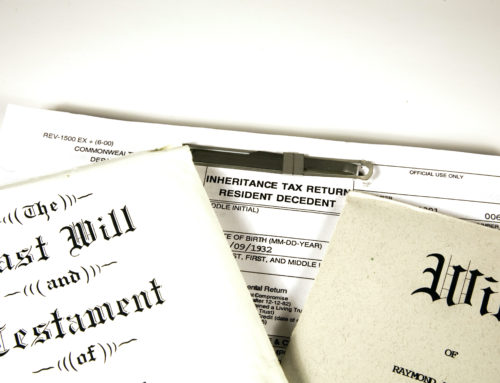The Estate and Tax Team at McMillen, Urick, Tocci, Fouse & Jones believe that there are three essential estate planning documents:
Last Will & Testament: this document contains your last wishes and directions for the distribution of your assets after your death. Without a Will, your assets will be distributed according to state law. For example, if you are married and wish for all of your assets to be provided to your spouse at the time of your death, you will need a Will to provide for that distribution in the event that you also have children. Per current Pennsylvania law, if you die without a Will, a percentage of your assets will be distributed to your spouse, while another percentage of your assets will be distributed to your children. Not only does this distribution go against your wishes, it may also impose a Pennsylvania inheritance tax on your estate, whereas assets distributed to your spouse will not. Your Will also will indicate who you choose to handle your affairs after you die. Without a Will, a court proceeding may be necessary to decide who will handle your affairs if multiple individuals express an interest in that role.
General Power of Attorney: this document allows you to give another individual the right to take certain actions on your behalf, especially in situations where you may be incapable of handling matters on your own. For example, if you are in the hospital for a long stay and you are unable to attend to your daily financial needs such as banking, investments, property, insurance or taxes, a Power of Attorney Agent can handle those needs for you. If you become incapacitated and are unable to sign legal documents, a Power of Attorney Agent can handle your affairs for you. Without a Power of Attorney in place, your family would be required to file a Guardianship action with the local court to handle your affairs. A Guardianship is both more timely and costly than a Power of Attorney, while also not providing a guarantee that a court rules in your family’s favor.
Living Will/Healthcare Directive: this document allows you to express your wishes concerning your future health care and allows you to appoint an individual to express your health care wishes in the event that you are unable to do so yourself. Similar to the General Power of Attorney document above, this document is used when a medical condition has left you unable to make medical decisions for yourself. For example, if you are in an accident, which results in you being unable to communicate, a Living Will/Healthcare Directive Agent can speak to the medical providers on your behalf and also can provide the Living Will/Healthcare Directive to the medical providers so that the instructions you have provided are followed.








